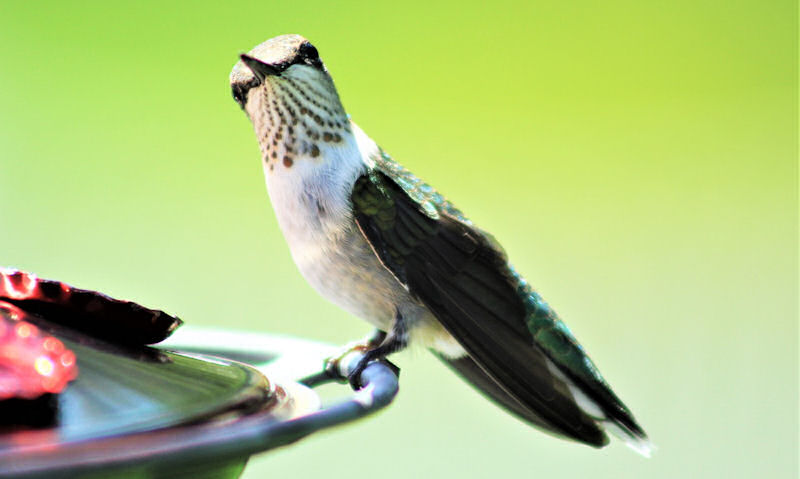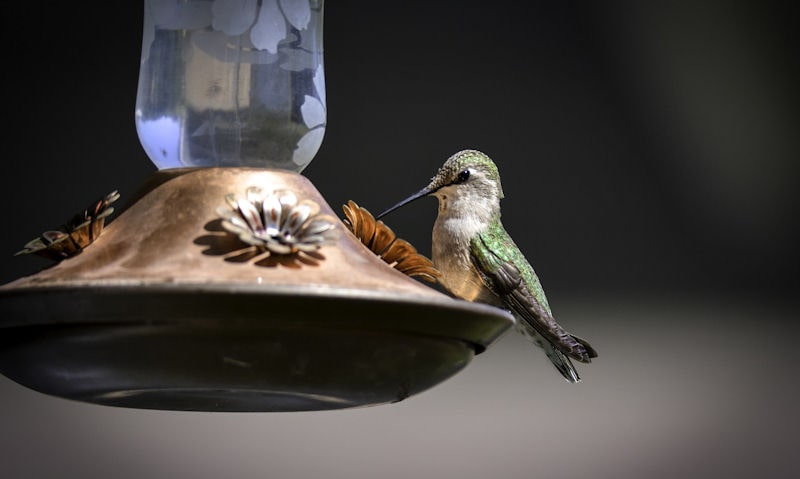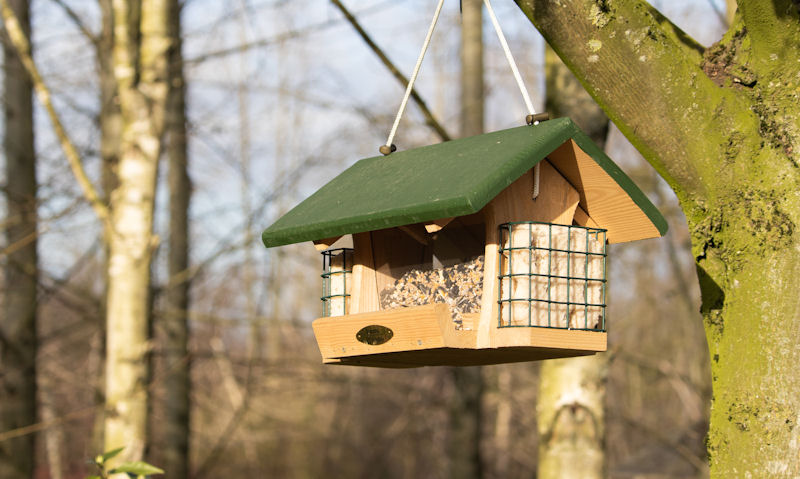When do birds visit feeders
Birds should actually be in your yard now and if so the same birds or more specifically, bird feeder birds will come to feeders just as soon as feeders are found.
When wild birds who frequent your yard most come to bird feeders is every day of the year. Failing that then birds could be overcoming an issue indirectly, like their natural habitat is under threat. Similarly, Orioles or Hummingbirds arrive in March through September only, thus you must be ready for their arrival.
I assure you the most common backyard birds are present in the United States all year long, thus no birds at bird feeders now could be due to an unrelated issue.
Of which a delay in your bird feeder use is due to your local birds natural habitat - like in the area where they go to nest in trees at night - could be under threat, or a predator has recently moved close by to your bird feeders.
Downturn in bird feeder use is unusual but its not unheard of due to unforeseen circumstances. Regardless, wild birds will sort out the issue that has before them and will return as normal - just as soon as you give current or new arrivals time to come back.
You know what, even while you await Orioles or Hummingbirds arrival in spring time, your backyard should absolutely be buzzing with common backyard wild birds, like Cardinals, Blue Jays, Finches or Warblers all year long.
Warblers and finches are all year birds thus their feeders must be put up now, whereby Cardinals or Jays will be fed on dishes to accommodate a larger bird.
Birds who frequent your local area should be attracted to a yard that is filled with natural vegetation and trees - whereas a bird feeder could just be enough.
On the other hand why no Hummingbirds at your feeder thus far could be because its the wrong time of year, and same goes for Orioles who all arrive in spring: then begin to leave for South American and States along the Gulf Coast up until early, to mid fall.
When Hummingbirds come to feeders is in March at the earliest so be prepared, where this same migratory timing applies to Orioles who also begin to come to their Oriole feeders in March through April - then begin to filter north all the way up to Canada.
Birds visit feeders all year
Generally speaking, your most common backyard songbirds within the United States and Canada are going to visit your bird feeders 365 days of the year.
Birds will absolutely visit bird feeders every day of the year thus there's never a bad time to begin feeding birds in your yard.
Its therefore never about when do birds visit feeders but more of a case of when are they busiest.
Well, again, that is every day of the year even if food is plentiful in the wild, yet you may see an uptake in bird feeders during a drought in summer - along with your bird bath always seeing more use - whereas bird feeders will be attracted to in cold winters.
Birds will come to your bird feeder for their favorite seeds of all things, of which this bird feed can cater to most backyard bird feeder birds.
And with mix wild bird seeds you'd want to cater to insect-eating wild birds with live or dried mealworms made available to them.
Birds will change their dietary needs in summer and winter although seeds and mealworms can be eaten all year.
Downturn will be unusual
With wild birds who are commonly found to visit your backyard all year around, I admit it would be unusual to have no wild birds visit your feeders any time.
Admittedly it isn't unusual but it is rare to see bird numbers drop drastically in your yard out of nowhere - even with a reliable abundance of bird feed in feeders.
Let me take an example of why no birds are visiting your yard at time time. Which in fairness could be a concern you currently have of when will birds visit feeders - when in fact they should be present in your yard right now.
Let's take for example Northern Cardinals likely to visit bird feeders if made available for most of us in North America.
Well, for Cardinals to stop coming to feeders could be due to a recent development in their natural habitat.
Of such, the Cardinals nesting grounds could have been disturbed, or it could be because one of your neighbors have produced a far more inviting backyard bird garden.
When wild bird numbers in your yard begin to decline it could be any of these reasons, thus it could just be an issue that will correct itself in due course.
Why aren't birds coming to your bird feeder now could be just one of those things, although its safe to say it is likely to be temporary.
Why NO visiting birds in your yard
Rather than being concerned about no wild birds visiting your bird feeders at this time, to observe lack of birds in your yard could be how you solve this issue.
Certainly digging up your landscape or razing trees or shrubs could in turn make your backyard less inviting to birds.
And with that even a new pet or a visiting stray cat in to your yard is enough to stop birds coming to bird feeders.
No visiting birds to your yard in general will obviously be a contributing factor in no birds at bird feeders currently.
Birds will absolutely visit your backyard every day of the year without fail, or at least that is the plan. When that doesn't happen you must certainly take a look at your yard, with any potential changes upsetting wild birds daily pattern.
Even with a downturn in visiting wild birds to your backyard - and therefore your bird feeders - do continue to put bird feeders out as normal because it could be any day now birds will arrive again, just as soon as they overcome an unknown current crisis.
Busiest times in morning
If you wish to find out what time of the day wild birds who currently visit your yard - do so at the business of times - then its always early morning when birds visit bird feeders, just ten or so minutes after dusk.
Backyard birds aren't nocturnal animals remember thus they can't come to bird feeders in super low light, before sun up.
When is the best time to feed birds at feeders is 8:00AM and after; this time can apply to all year long expect winter when it will be later for many of you.
With wild birds arrival to your yard to feed at feeders or in case of ground feeding birds who feed under suspended bird feeders - expect their busiest time to be up to noon, or an hour or more thereafter.
Backyard birds will continue to return to bird feeders through the afternoon up until the early evening.
While birds do visit bird feeders early on its imperative you have your bird feeders hung out the night before. Failing to be prepared for an early morning feeding frenzy will in fact waste an opportunity for bird feed to be used up.
To summarize
When birds visit your bird feeders it will be every day of the year without fail, but only if you do in fact attract wild birds previously to your yard.
No visiting wild birds to bird feeders is an issue but its more of an issue if you don't see any wild birds even visit your yard to forage on the lawn.
In which case you may need to landscape in your yard with trees, plants, flowers and of course a lawn to become inviting feeding grounds for wild birds in the area. Not all birds are found on bird feeders thus it helps to throw bird seed on an available lawn.
Birds visit bird feeders all year long thus to have no birds at feeders at this time, could be because you need to up your game when setting up bird feeders.
Now or in due course wild birds will begin to filter in to your yard where their they are found to take their favorite bird feed.
Downturn in bird feeder use isn't uncommon while its seen to fix itself down the road.
Remember, while awaiting for Orioles or Hummingbirds to come to feeders - bear in mind these are migratory birds - thus they all visit feeders as early as March, or a little later when they arrive back in North America come spring.
When is the time to find common backyard songbirds on feeders is early morning, just after sun light.
Birds can then be expected to come and go to bird feeders for the rest of the day, come rain or snow, summer or in winter time.


